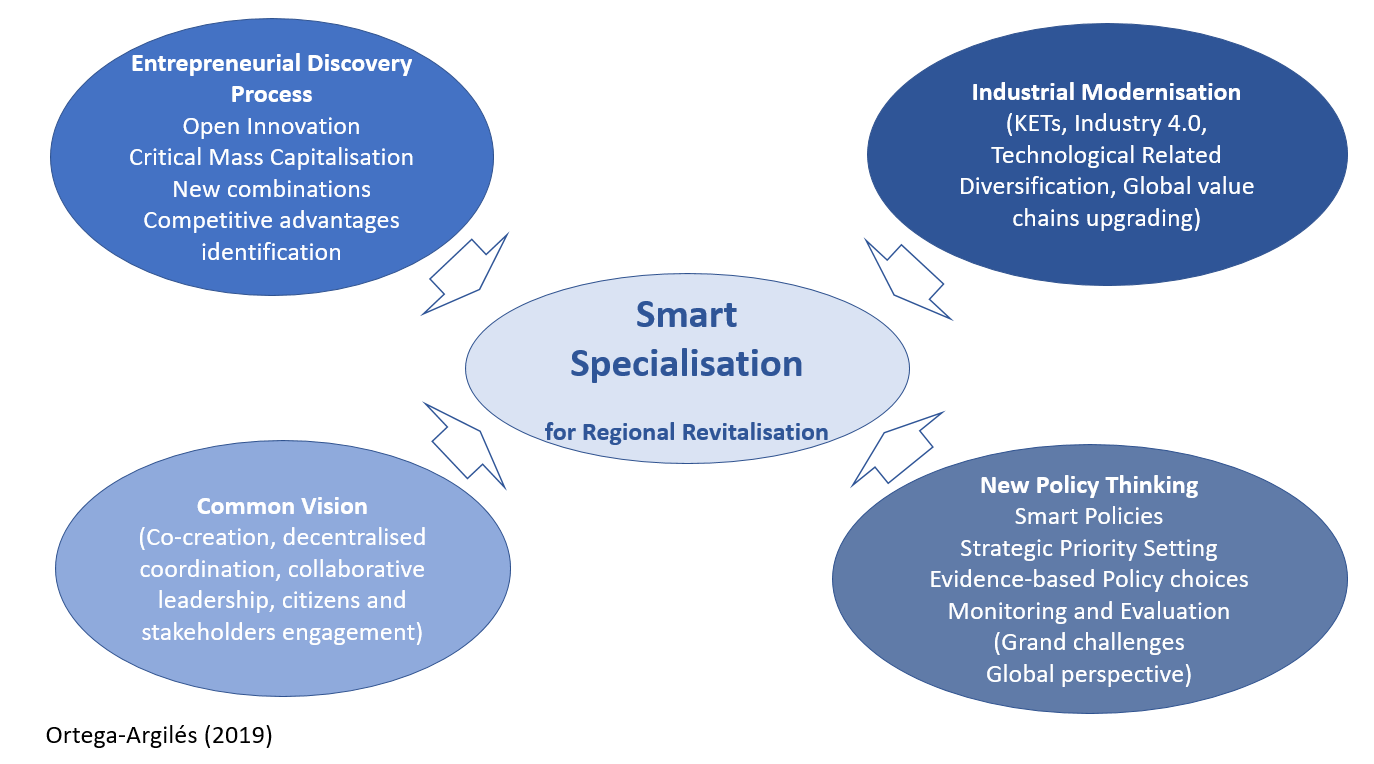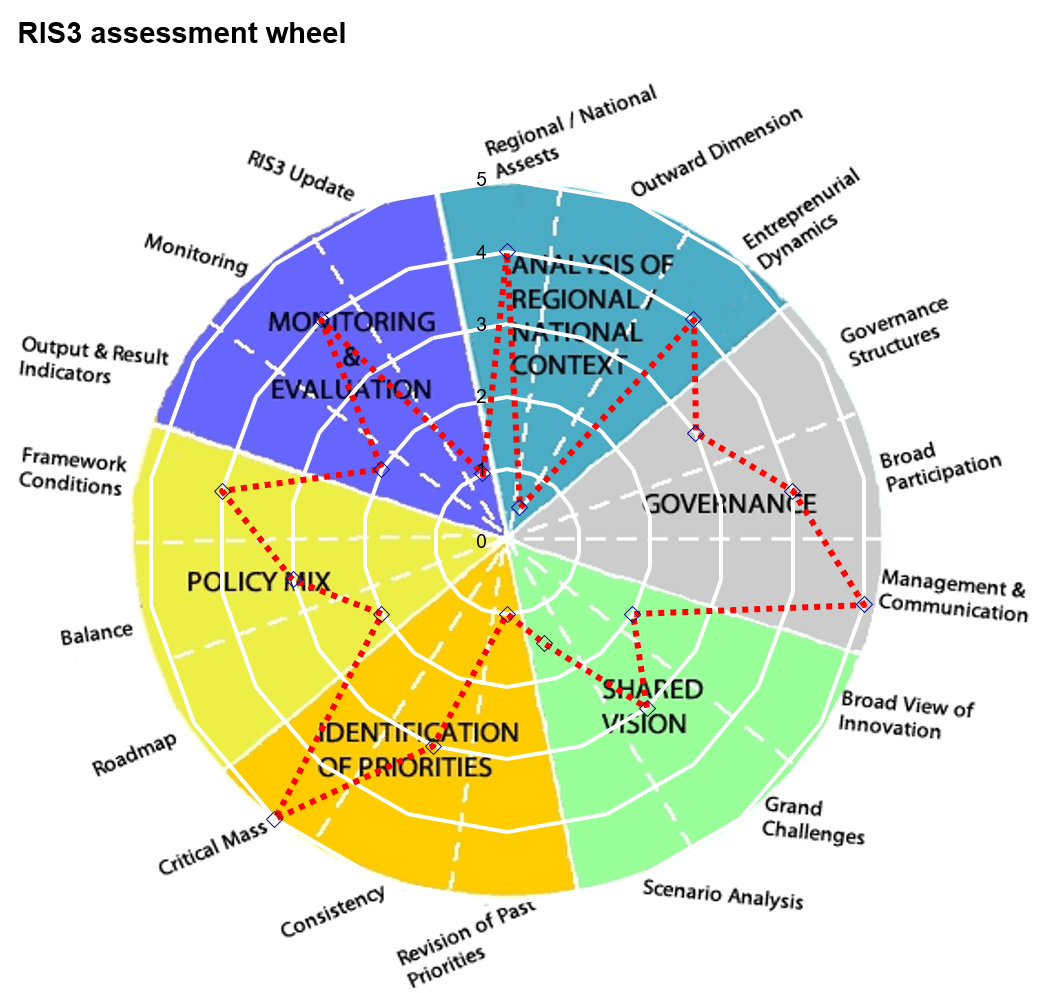 Welcome to part two in our new series “What is…?” where we explain the language, terms and ideas used in our day-to-day work. Other blogs from the series include:
Welcome to part two in our new series “What is…?” where we explain the language, terms and ideas used in our day-to-day work. Other blogs from the series include:
Definition and description
Smart specialisation is a policy framework aimed at finding ways to enhance the scale and effectiveness of entrepreneurial processes trying to develop regions’ indigenous potential. Its origins are linked with the European Commission’s Europe 2020 Strategy for “smart, sustainable and inclusive growth”. But has been adopted for many other countries around the world. It is a bottom-up approach to boosting growth and jobs, centred around partnerships between businesses, public entities such as local authorities, academia and civil society. The European Commission emphasises three aspects:
- Smart: regions focusing on what they are good at.
- Specialised: prioritising research and innovation investment in a competitive environment.
- Strategic: policies are strategic, defining a shared vision for regional innovation and development.
Examples of Smart Specialisation
Flanders, Belgium has focused on nanotechnology-for-health given its strong background in nanotechnology, biotechnology, health and medical devices. Andalusia, Spain has prioritised its aerospace cluster building on its Advanced Centre for Aerospace Technologies, aeronautical scientific and technological parks, advanced system for simulating forest-fire fighting, aerial test bench and strong knowledge base in aeronautics. England’s Smart Specialisation Strategy stresses the potential to develop sectors such as life sciences and professional business services.

Smart Specialisation: thinking linguistically
Examining how ‘smart specialisation’ is translated into other languages provides further insight into the meaning of the term. The French and German translations “spécialisation intelligente” and “Intelligente Spezialisierung” would be directly translated into English as “intelligent specialisation”. In some ways, this more clearly conveys the importance in the approach of innovation policies focusing on wise specialisation, i.e. specialisation that makes sense in a particular nation or region in view of its own strengths and comparative assets in research, entrepreneurship and innovation.
Further Reading
For more details of the European Commission (EC) Smart Specialisation policy, including examples of Smart Specialisation policies in various EU countries, consult the EC Smart Specialisation Platform.
To gain a global perspective of smart specialisation, access the 2013 OECD report: “Innovation-driven Growth in Regions: The Role of Smart Specialisation”.
To learn more about Smart Specialisation priorities and policies in England, read the 2015 England Smart Specialisation Submission to the European Commission.
For analysis of the UK region’s innovation activities, strengths and capabilities across different sectors and industries, visit the Smart Specialisation Hub website. The website includes profiles of innovation assets and activities in England’s 38 Local Enterprise Partnerships (LEPs).
City-REDI Professor Raquel Ortega-Argilés, who holds the Chair in Regional Economic Development is an expert in smart specialisation. Raquel previously worked at the Joint Research Center of the European Commission and has published extensively on smart specialisation. Check out Raquel’s publications here.
Download a copy
Download a printable copy of What Is Smart Specialisation?
This blog was written by Professor Raquel Ortega-Argiles, Chair, Regional Economic Development and Dr Abigail Taylor, Policy and Data Analyst, City-REDI, University of Birmingham.
Disclaimer:
The opinions presented here belong to the author rather than the University of Birmingham.
To sign up for our blog mailing list, please click here.

1 thought on “What is Smart Specialisation?”